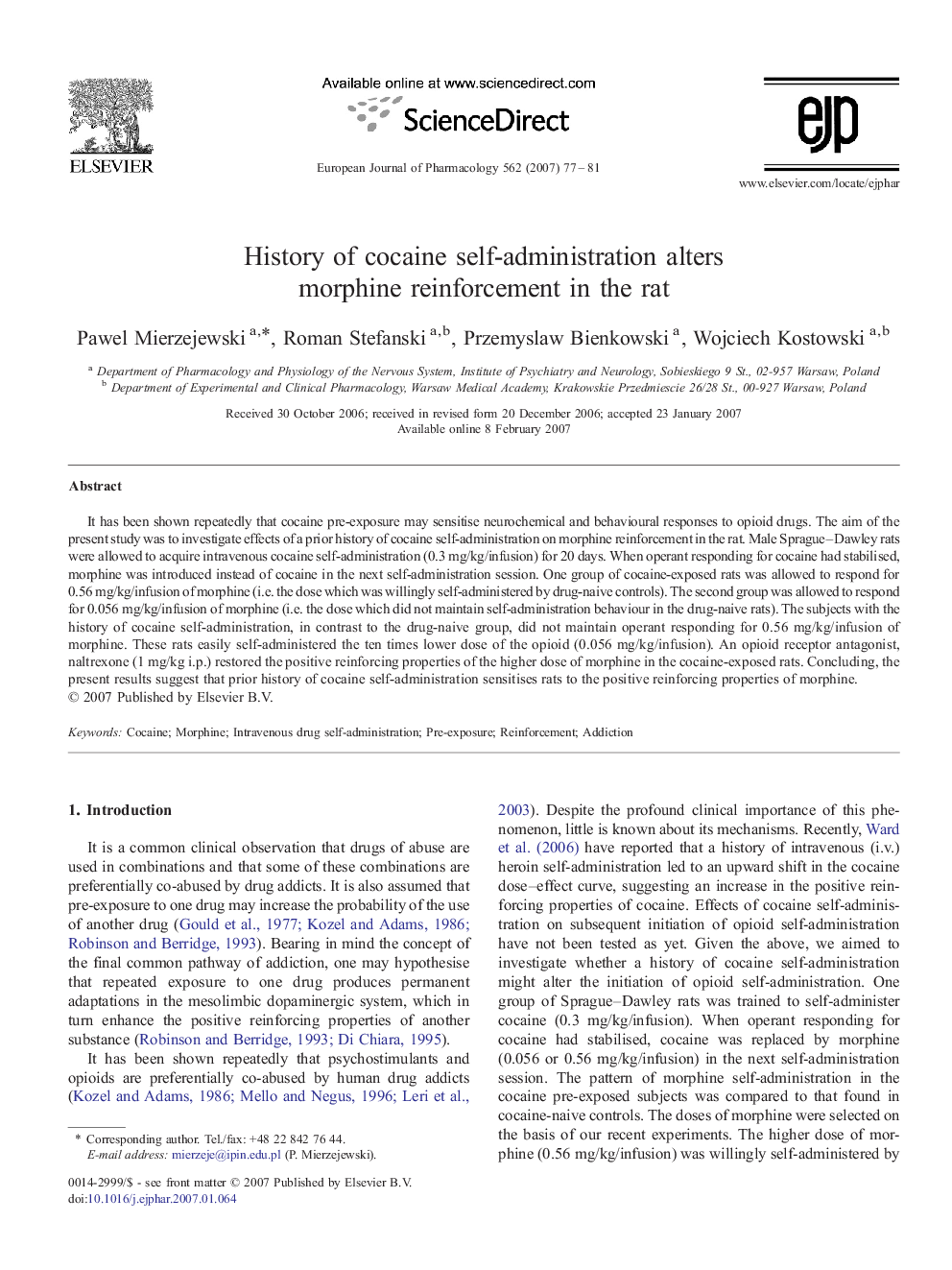| Article ID | Journal | Published Year | Pages | File Type |
|---|---|---|---|---|
| 2536251 | European Journal of Pharmacology | 2007 | 5 Pages |
It has been shown repeatedly that cocaine pre-exposure may sensitise neurochemical and behavioural responses to opioid drugs. The aim of the present study was to investigate effects of a prior history of cocaine self-administration on morphine reinforcement in the rat. Male Sprague–Dawley rats were allowed to acquire intravenous cocaine self-administration (0.3 mg/kg/infusion) for 20 days. When operant responding for cocaine had stabilised, morphine was introduced instead of cocaine in the next self-administration session. One group of cocaine-exposed rats was allowed to respond for 0.56 mg/kg/infusion of morphine (i.e. the dose which was willingly self-administered by drug-naive controls). The second group was allowed to respond for 0.056 mg/kg/infusion of morphine (i.e. the dose which did not maintain self-administration behaviour in the drug-naive rats). The subjects with the history of cocaine self-administration, in contrast to the drug-naive group, did not maintain operant responding for 0.56 mg/kg/infusion of morphine. These rats easily self-administered the ten times lower dose of the opioid (0.056 mg/kg/infusion). An opioid receptor antagonist, naltrexone (1 mg/kg i.p.) restored the positive reinforcing properties of the higher dose of morphine in the cocaine-exposed rats. Concluding, the present results suggest that prior history of cocaine self-administration sensitises rats to the positive reinforcing properties of morphine.
